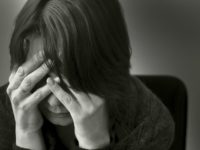After experiencing struggles in the wake of the COVID-19 pandemic, Australia’s sole traders feel optimistic about their prospects as the most populous states prepare to reopen and a post-pandemic “new normal” is underway.
This is according to the recently-released inaugural Hnry Sole Trader Pulse, a survey of 500 ABN-registered tradies, freelancers and contractors carried out by Resolve Strategic on behalf of fintech digital accountancy service Hnry.
However, there are significant variations among the states, with Victorians still in lockdown the least optimistic about their prospects. Also, sole traders who were financially impacted by COVID are more likely to classify their mental health as “poor” or “very poor”.
Australians who classify their primary occupation as “self-employed” currently make up 1.5 million of the nation’s 2 million-plus small businesses with total estimated earnings of around $90 billion a year. The number of sole traders has grown by 110,000 since the start of the pandemice, making them the the fastest-growing yet most underappreciated sector of the nation’s economy.
The report also noted that 41 per cent of sole traders believe their business has done worse since March 2020 compared to pre-COVID, while 25 per cent say the pandemic has had little effect on their business and 12 per cent saying they are doing better;
With regards to assistance, only 35 per cent of sole traders received government support during the pandemic. But of those who did, 61 per cent said the level of support was adequate for their needs, compared with 19 per cent who say it was inadequate. The report also reveals that 46 per cent of sole traders attempted to access a new loan or credit in the last 12 months butt 21 per cent had difficulty doing so.
And, while most respondents are positive about the long-term personal benefits that sole trader status provides, including work/life balance and the degree of freedom it affords them, the effects of the pandemic took a heavy toll on many. The report noted that those most affected financially by the pandemic are eight times more likely to classify their mental health as “poor” or “very poor”.
Karan Anand, Head of Hnry Australia, said the results are a compelling snapshot of the confidence and outlook of Australia’s sole traders as the nation looks to a post-pandemic recovery.
“The results are clear, Australia’s sole traders have been battered by the COVID-19 pandemic and rolling lockdowns, with almost half taking a hit to their business, and only one in eight having fared better than before,” Anand said. “Additionally, access to credit or loans for sole traders over the last year proved difficult for around half of those who pursued it.
“But sole traders are renowned for having the skillset and the mettle to overcome challenges in their everyday operations, and these results show that there are healthy green shoots of optimism in their outlook,” Anand added. “Interestingly, the pandemic has largely not dimmed the motivations for pursuing the sole trader life – freedom, work/life balance, self-starting and self-reliance. These are the underpinning reasons we are seeing a sunnier outlook, despite government support tapering away.”















